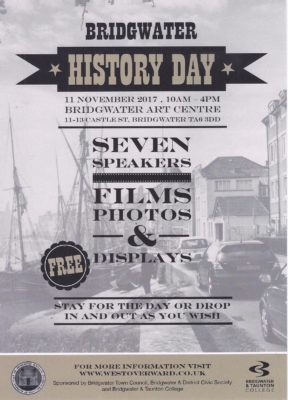 A scratchy recording made on a wax cylinder more than a hundred years ago held the audience in the Arts Centre spellbound, at the end of a day spent exploring Bridgwater’s turbulent and often radical history. The words were hard to make out but the voice came through clearly. It was Jack Barnard a man who was said to have been illiterate but who could sing more than 150 songs. He contributed dozens of them to the folksongs collected by Cecil Sharp in the early years of the last century. In the words of Yvette Staelens, who brought us his story, Jack was “a local hero of Bridgwater.”
A scratchy recording made on a wax cylinder more than a hundred years ago held the audience in the Arts Centre spellbound, at the end of a day spent exploring Bridgwater’s turbulent and often radical history. The words were hard to make out but the voice came through clearly. It was Jack Barnard a man who was said to have been illiterate but who could sing more than 150 songs. He contributed dozens of them to the folksongs collected by Cecil Sharp in the early years of the last century. In the words of Yvette Staelens, who brought us his story, Jack was “a local hero of Bridgwater.”

Yvette had guided us through the history of how Sharp and a local vicar, the Rev Charles Marson, collected the words and music that went into five volumes of folk songs from Somerset. Some of the songs they wrote down were “dirty ditties” said Yvette. In prim Edwardian England, the dirty bits couldn’t make it into print, so they stayed in Sharp’s notebook.
Back to the 13th Century

Yvette was the last speaker on a day that began with a trip back to the 13th century. Chris Sidaway guided us through Bridgwater’s medieval heritage, beginning with the granting of a charter by King John in 1200. Soon afterwards the castle was built. A section of its wall can be seen at West Quay. And Chris told us there’s another bit of it behind Boot’s. He also guided us towards medieval remnants in Silver Street, Dampiet Street, Mary Court and in the High Street near the Engine Room.
One of the better-preserved buildings is the Old Vicarage, now a hotel but in its time a home for the clergy and then a school. In 1381 one of the priests, Nicholas Frampton, visited London, saw the Peasants’ Revolt there, then came home and instigated a little peasants’ revolt here. There was to be more on Bridgwater’s rebellious side later.
Bridgwater College Days
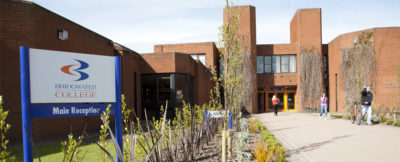
But first, Matt Smith brought us the history of Bridgwater College. It began in 1861 in George Street as Bridgwater School of Art and under various names was located in Blake Street, and Broadway before arriving in Bath Road. A prospectus from 1973 revealed the attitudes of the time. Bridgwater College, it said, had courses for everyone: “Father can brush up on his French or his electronics. Mother can do dressmaking or keep fit. Son can takes his A-levels and prepare to go to university. Daughter can train for secretarial work or nursing.”
Remembering the Workhouse
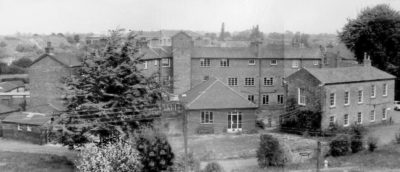
A grim side of Bridgwater life was revealed by Richard Filler, who spoke about the town’s workhouse and its predecessors. As far back as 1216, Saint John’s Hospital had places for 14 of the poor and infirm. By the early 19th century, 80 or 90 people were accommodated in a poorhouse outside the South Gate. Cholera, dysentery and typhus were rife. The engineer who designed Cornhill, John Bowen – also a newspaper editor – exposed the terrible conditions, describing the poorhouse as a “murderous pest house.”
In the 1830s, the Bridgwater Union Workhouse was built, to replace 40 parish poorhouses. Its entrance was imposing. Once inside, children were separated from parents and husbands from wives, to subsist on an inadequate diet of bread and gruel. For more on the workhouse click here.
River Parrett memories

The River Parrett has been a constant in the history of Bridgwater. Sandy Maberley introduced part of an evocative film “Out of the Mouth of the Parrett” made by Theatre Melange in partnership with Somerset Libraries. Sandy explained that researchers had recorded 400 people talking about their life and work on the river. The section we saw took us from the Bristol Channel to Bridgwater in the words of a mud fisherman, a conservationist at Steart, a boatman and dockers.
Slave Trade First
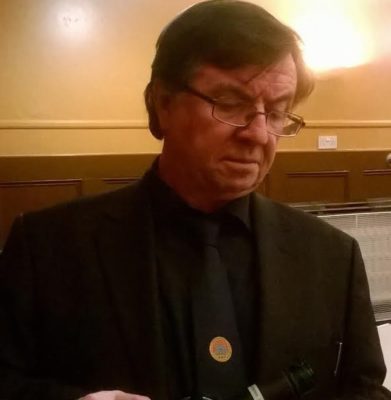
A political edge was introduced by Brian Smedley, who told us of radical action he said Bridgwater could rightly be proud of. In 1785, the town was the first to gather a petition against the slave trade. Brian traced the town’s resistance to slavery back a hundred years to 1685, when some of the participants in the failed Monmouth rebellion were transported as slaves to the West Indies. The campaign of the 1780s included clandestine meetings at the Pipers in Ashcott, between the local organiser John Chubb and the radical Whig leader Charles James Fox. The slave trade was eventually outlawed in 1807 and slavery was abolished in 1833 – with compensation paid to the slave owners, not the slaves. The full story can be seen here,
Recalling the Poll Tax
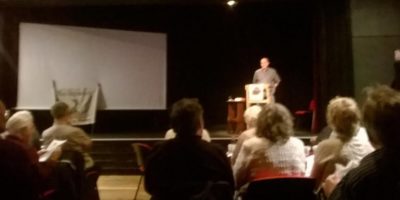
A campaign that can claim to have a quicker result was recalled by Dave Chapple who spoke on the poll tax rebellion of 1990. Under the slogan “better to break the law than break the poor” there were marches and tumultuous scenes at council meetings. As Dave said: “for a brief period, Bridgwater politics was livened up.” And he said the ant-poll tax movement created its own culture – with anti-poll tax skittle teams and anti-poll tax marriages. The government announced in March 1991 that the poll tax would be abolished; it was replaced by Council tax in 1993.
History Flashes By
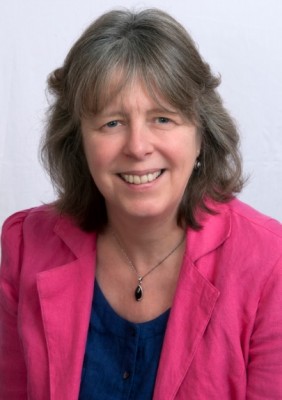
The six speakers and the film were seen and heard by a full audience, who also enjoyed a history-themed lunch. As Kathy Pearce said in closing, the five hours seemed to speed by. There was enthusiastic agreement with her suggestion that Bridgwater History day should be held for a third year in 2018.
Bridgwater History Day was sponsored by Bridgwater Town Council, Bridgwater & District Civic Society and Bridgwater & Taunton College. Medieval food was provided by Claudia Swain.
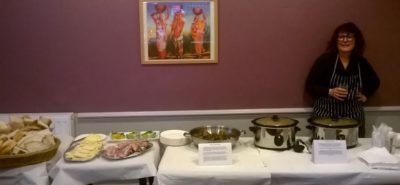

Absolutely brilliant day! Very informative and entertaining. I thought I knew so much already about the town’s history but new things are being uncovered all the time! The town has always been a radical town as discussed and long may that continue!
Congrats on a great event! For next year, would you like a power point illustrated “sideways” look at the Duke of Chandos, the Glass Cone (and the tumble-down castle)? Experienced speaker, research for this a recent assignment in degree course (a very mature student)! Let me know if interested. Val Bannister